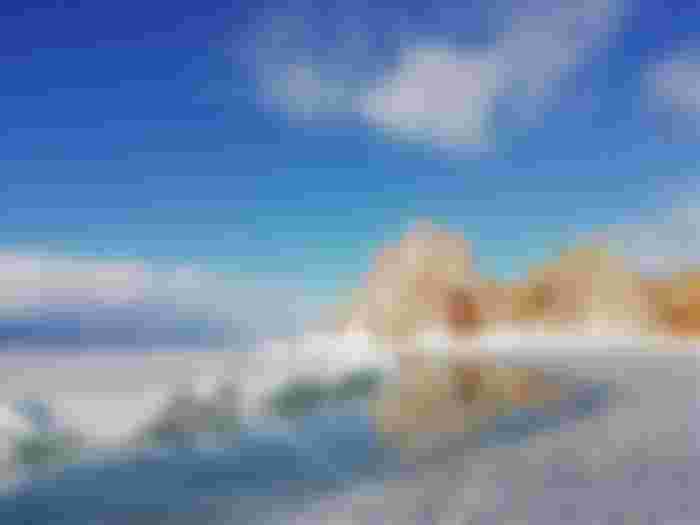According to its share of global air pollution, the melting of the northern permafrost is already being compared to the overall pollution emitted by China.
The rise in temperature in Russia over the past 100 years has been 1.5 to 2 times higher than overall global warming. Siberia and Arctic Russia are particularly affected. In the shadow of the pandemic, news went unnoticed that a record 38 degrees had been recorded for the first time during a heat wave in Siberia.
Batagayka Crater in the Russian republic of Yakutia, in northeastern Siberia, is one kilometer long, and in some places up to 100 meters deep. It is the world’s largest crater of permafrost, a layer of earth that has been frozen for thousands of years, and deeper sediments even more than 200,000 years old.

Nikolai Stepanov, an inspector with the Yakut Ministry of Ecology, spotted the bone of an ancient mammoth that lived in the Holocene period, probably several thousand years ago.
A few years ago, permafrost began to melt in the crater. Similar phenomena occur throughout the polar cap, e.g., 2300 km west of the Jamal Peninsula. At the same time, the process of melting the Earth's surface began to destroy human settlements in Siberia.
The largest country in the world, the Russian Federation, covers as much as a ninth of the total land area. Almost a third of that area is permafrost. The frozen ground is up to a kilometer and a half deep in places. Some large cities have also been built on the permafrost, such as Yakutsk, where about 300,000 people live. The statics of the buildings have been seriously disturbed.
Across the polar and subpolar circle, the infrastructures of 1,200 cities are endangered, as well as 3.4 thousand kilometers of gas and oil pipelines that are said to be the bloodstream of the Russian economy. Railways and highways are also failing.

Georgy Istigichev, a researcher at Tomsk State University, says the ground beneath the road layer is becoming unstable.
- Frozen earth is hard. After thawing, the soil fills with water, becoming liquid and uneven. When trucks go on the road, they create pressure on the slabs that are the foundation of the highway and those slabs start to crack, he added.
All of the above is just a geological aspect of the problem. It is atmospheric here: in addition to the bodies and skeletons of prehistoric animals, the remains of the former flora and fauna are today a mass of carbon. Due to the process in the melting of permafrost, this carbon is released into the atmosphere as part of carbon monoxide and methane.
According to its share of global air pollution, the melting of the northern permafrost is already being compared to the overall pollution emitted by China. In addition to the Arctic Circle, the temperate zone of Eurasia is reportedly warming two and a half times faster than the Earth's average. Siberian winters are no longer like from the time of Doctor Zhivago. They are becoming more and more similar to Central European ones before global warming.
Projections of the future of Siberia are not unambiguous. The first, catastrophic, is supported by mass fires and humanitarian and environmental disasters that are a combination of climate change and neglected infrastructure. Under this scenario, people could continue to leave the already extremely sparsely populated area. But according to another projection, areas that are still synonymous with harsh cold by 2080 could have a stable temperate climate unlike some of the southern parts of the Earth. Migration trends are currently such that the Russians are leaving Siberia, and for now, the Chinese are arriving slowly.
In the shadow of the pandemic, the news that a record 38 degrees was recorded for the first time during the heat wave in Siberia went unnoticed ...


Of course, Covid 19 is the main news around the world, and the fact that high temperatures are measured in Siberia does not matter ... That is why there is a Corona, so that we can ignore all other important events in the world!